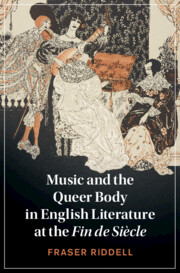Acknowledgements
I would like to express my heartfelt thanks to the many people who made the completion of this book possible, and without whose help the process would have been much more arduous and much less enjoyable. Particular thanks are due to Simon James for his guidance and encouragement throughout the project, and to David Ashurst for many stimulating conversations that assisted me in developing my ideas. Stefano Evangelista and Patricia Waugh also offered invaluable support. I would especially like to acknowledge the vibrant interdisciplinary scholarly community fostered at Durham University by the Institute for Medical Humanities and the Centre for Nineteenth-Century Studies, both of which provided opportunities to consider my work from new perspectives. I also owe a sincere debt of gratitude to David Fuller and Corinne Saunders for their continual friendship, mentorship and encouragement over many years.
The following people have helped me to think in more creative ways about literature, music and everything else: Elizabeth Archibald, Marc Botha, Francesca Bratton, Oliver Clarkson, Sarah Collins, David Deutsch, Rick de Villiers, Kristen Franseen, Peter Garratt, Elsa Hammond, Joanna Heath, Roisín Laing, Sarah Lohmann, Jane Macnaughton, Catherine Maxwell, Martin Pickard, Joshua Pugh, Natalie Riley, Joseph Schultz, Tsung-Han Tsai, Benjamin Westwood, Angela Woods, Bennett Zon and Patrick Zuk. Work by Patricia Pulham, Emma Sutton and Phyllis Weliver provided the best model I could hope to follow as a scholar. Thank you also to Will Tattersdill for kind and helpful advice about publication.
For enthusiastic discussion of music over many years, I am grateful to Megan Price and Alex Fox. It all started with Jane Waters and Jason Orringe, whose dedication as teachers first introduced me to the joy of music. This book is also the product of the transformative sense of queer musical community provided by the London Philharmonic Choir, with whom I sang in the early years of the project’s gestation.
This book would not have been possible without the assistance of a number of helpful and knowledgeable librarians and archivists. I would like to thank, in particular, Alyson Price for assistance at the British Institute in Florence, and the staff of Durham University Library, the British Library, the Bodleian Library and the National Library of Scotland. I am also grateful to colleagues at the Faculty of English Language and Literature, University of Oxford, and at Trinity College, Oxford, for offering the supportive environment in which the book was finished.
The project was supported by the Arts and Humanities Research Council and by the Wellcome Trust (209513/Z/17/Z), whose generosity allowed for open access publication. Other financial support for research activities was provided by the Department of English Studies, Durham University. My thanks also to the anonymous readers at Cambridge University Press for their generous and constructive suggestions, and to Fiona Little for her meticulous copy-editing. A section of Chapter 3 was previously published in Victorian Literature and Culture 48.3; I am grateful to Cambridge University Press for allowing me to include this material in revised form here. For permission to include my epigraph, I am grateful to the Provost and Scholars of King’s College, Cambridge, and the Society of Authors, acting on behalf of the E. M. Forster Estate. The cover image is reproduced by permission of Durham University Library and Collections (SC+ 00699).
The book is dedicated to the memory of my grandmothers, May Riddell and Aileen Playfair. Things have a way, as the former was wont to say, of working themselves out.
Finally, thanks to Tom.

